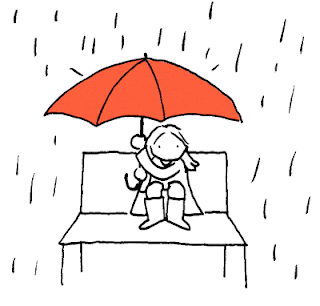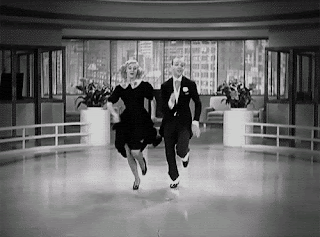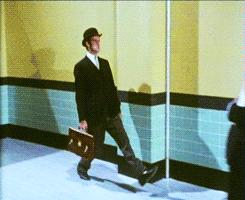torsdag, september 24, 2015
onsdag, september 23, 2015
Därför avslutade Ernst-Hugo Järegård Nyheternas premiärsändning
TV4Nyheternas premiärsändning 15 september 1990 avslutades med att Ernst-Hugo Järegård läste en dikt. - Det visar hur vi tänkte utanför boxen, säger Bengt Magnusson.
Billig mat är sämre mat...billig tröst är sämre tröst...
Billig mat är sämre mat...billig tröst är sämre tröst...man skiter i om man lever eller dör för all er frihet att äga inhägnar all annan frihet. Våra barn ger upp i mellanstadiet. Era ungjävlar får allt de vill.
De kommer förr eller senare bli mål att råna effektivt. Ni släcker våra barns ögon med er frihet att äga.Om det inte fanns pengar vore vi alla rika.
Styghetssystem heter det.
Att vara fattig är ingen skam, men det är det visst nu på nytt...Delningen av människor i dåliga och bra är mycket gammal och följer ett slags mönster som liksom ingen har ansvar för, ingen tar liksom beslutet att avliva människor. Det föregås av en lång process som slutligen tycks sluta i katastof. Att vi sedan glömmer medan vi upprepar att detta får alldrig glömmas..
Det var inte skriktysken som vred kranar eller avlossade alla vapen...Det var den tyska medelklassen.
Ni hjälper till fint i det kommande folkmorden, grattis suckers!
De kommer förr eller senare bli mål att råna effektivt. Ni släcker våra barns ögon med er frihet att äga.Om det inte fanns pengar vore vi alla rika.
Styghetssystem heter det.
Att vara fattig är ingen skam, men det är det visst nu på nytt...Delningen av människor i dåliga och bra är mycket gammal och följer ett slags mönster som liksom ingen har ansvar för, ingen tar liksom beslutet att avliva människor. Det föregås av en lång process som slutligen tycks sluta i katastof. Att vi sedan glömmer medan vi upprepar att detta får alldrig glömmas..
Det var inte skriktysken som vred kranar eller avlossade alla vapen...Det var den tyska medelklassen.
Ni hjälper till fint i det kommande folkmorden, grattis suckers!
Gitarren 5 november 1963 Åberg, Broberg Schaffer.
*
Gitarren 5 november 1963
Musikprogram
Ballader, rock och lite till.
Medverkande:
Lars Åberg
Jan Schaffer
Robert Broberg
Anna Roll
Bo Lundqvist
Ronny Grant
Stefano Balsamo
Ove Södersjö
The Customs
tisdag, september 22, 2015
Peter Gabriel - Argentina 22nd March 2009 HQ
Peter Gabriel and Band playing in Argentina at Estadio de Velez in Buenos Aires 2009. The show was televised and the last parts of the show are from different sources. Sound is EX+ SBD throughout. Enjoy.
And please buy the official albums and concert recordings!
Please watch in HD
Peter Gabriel - Secret World Live
________________________________________________________________________________
Peter Gabriel - Secret World Live
Does Comedy Make Comedians Crazy? Or Is It Their Therapy?
Dr. Ildiko Tabori, America's foremost therapist for comedians, delves into the sad clown psyche.
Big Think and the Mental Health Channel are proud to launch Big Thinkers on Mental Health, a new series dedicated to open discussion of anxiety, depression, and the many other psychological disorders that affect millions worldwide.
Transcript - Being a stand-up comedian is one of the hardest jobs in the entertainment industry, if not the hardest job in the entertainment industry. And it takes a special skill and a special talent to be able to do that, to be up there onstage, just you and a microphone and a stool, and be able to be so open and vulnerable. You know, you hear stories. Comedians are more depressed. They have more substance abuse. They have more this, more that.
And, you know, they’re just a really, really troubled population. And I, I don’t necessarily think they’re more troubled than anybody else. The lifestyle of a stand-up comedian breeds the depression. Or can exacerbate something that’s pre-existing, like the bipolar disorder, or substance abuse. Because what happens is that they are out on the road, and they are by themselves, and they’re traveling sometimes to these areas that aren’t very popular and aren’t very pretty and working in these dark, dank clubs and then going back to a dark, dank hotel room. And it gets very, very lonely. They don’t have their support system. They don’t have much of anything there. They’re by themselves. So when you’re bored, you’re gonna find something to entertain yourself with, like alcohol or drugs. And that’s that’s when the problems start to persist, and then it, it goes on and on and on from there until they get treatment.
Comedians do see comedy as a sort of self-treatment. A lot of times they think of it as their therapy. The problem is, is that being onstage and performing and doing your stand-up it’s not therapy. It is definitely therapeutic, but it is not therapy. There is that thought that if you are successful, if you make more money, if you are admired, if you’re recognized out on the street, that all your problems are gonna go away.
That is not true, and again, as we saw with Robin Williams, his problems did not go away. Your problems just become different. They become different levels of stress, different levels of depression. And it’s, across the board, if you don’t deal with your mental health it’s not gonna go away. There is a stigma across the board still with mental health. We think that that we can’t solve our own problems and if we go seek help by talking to a therapist, psychologist, psychiatrist, any other mental health worker, that there is a problem with us, that, that we’re crazy or something like that.
So comedians I think will and can be a useful resource in terms of teaching the world about mental health issues. When you come out publicly, um, and deal with, um, any sort of issue on, um, a certain level and talk about it as if it is just something that is not stigmatized, then we won’t look at it as something that is bad or evil or that we’re actually ill. I think what we need to start doing is really looking at mental health as any other medical condition that we all experience. You know, we have a pain in our knee, a pain in our back, we have diabetes, we have a heart condition, we go to a doctor, take medication, eat right, exercise, do what we need to do, follow through with that. And we start getting better, hopefully. Well, that’s the same thing with mental health.
Read more at BigThink.com:
http://bigthink.com
Learn more at the Mental Health Channel:
http://mentalhealthchannel.tv/
Follow Big Think here:
YouTube: http://goo.gl/CPTsV5
Facebook: https://www.facebook.com/BigThinkdotcom
Twitter: https://twitter.com/bigthink
Lawrence Krauss: We Need to Teach Kids Creative Thinking
"Education is far less about a set of facts than a way of thinking," says the professor and theoretical physicist Lawrence Krauss. "And therefore what I always think should be the basis of education is not answers but questions."
Transcript - Education is far less about a set of facts than a way of thinking, than learning how to critically think. And therefore what I always think should be the basis of education is not answers but questions. We should teach kids how to question. Now having said that of course to be a productive adult there are certain skills that are required – reading, writing and in the old fashioned days we used to say arithmetic. Now we say mathematics.
And it’s important that we provide students those basic skills. And in that sense I’m in favor of a common core because I think there are certain things that most reasonable educators and most reasonable mathematicians and scientists and historians would agree are a part of what every modern literate person should have as a tool to go out and look at the outside world.
I am in favor of saying okay, let’s get teams of educators and experts in certain disciplines to say what are the basic things that we think are an essential part of an early education for people. Put them together and create as well as possible a set of goals and tools to learn those things. One thing I cannot understand and people are probably going to be upset about this is why local school boards have control over educational content. Because local school boards are inevitably made up of individuals without any training. One of the reasons we send kids to school is to help protect them from their parents – in a good sense. I mean most parents want their kids to learn good but the point is the reason kids are outside the house is so they can get exposure to things that might take them beyond the biases that they learn at home.
And if we send them to school we should take them beyond the biases that are present in local school board members. There should be standards that are based – that are determined by educators, not by people who for one reason or another run for election to a local school board. So a common core is something I’m in favor of. What I’m not in favor of by the way is standardized tests however. Testing always inevitably means you teach students to be able to do tests. And I’ve seen it at all
levels including by the way at graduate school. We have many grad students say from China who are excellent at taking physics tests but when they want to become researchers just being able to regurgitate information is not what makes you a creative researcher. And I think the same is true for a young person. Being able to know specifics to pass a test is not the same as being able to understand how to go about answering those questions.
Read more at BigThink.com: http://bigthink.com/videos/the-common...
Follow Big Think here:
YouTube: http://goo.gl/CPTsV5
Facebook: https://www.facebook.com/BigThinkdotcom
Twitter: https://twitter.com/bigthink
Transcript - Education is far less about a set of facts than a way of thinking, than learning how to critically think. And therefore what I always think should be the basis of education is not answers but questions. We should teach kids how to question. Now having said that of course to be a productive adult there are certain skills that are required – reading, writing and in the old fashioned days we used to say arithmetic. Now we say mathematics.
And it’s important that we provide students those basic skills. And in that sense I’m in favor of a common core because I think there are certain things that most reasonable educators and most reasonable mathematicians and scientists and historians would agree are a part of what every modern literate person should have as a tool to go out and look at the outside world.
I am in favor of saying okay, let’s get teams of educators and experts in certain disciplines to say what are the basic things that we think are an essential part of an early education for people. Put them together and create as well as possible a set of goals and tools to learn those things. One thing I cannot understand and people are probably going to be upset about this is why local school boards have control over educational content. Because local school boards are inevitably made up of individuals without any training. One of the reasons we send kids to school is to help protect them from their parents – in a good sense. I mean most parents want their kids to learn good but the point is the reason kids are outside the house is so they can get exposure to things that might take them beyond the biases that they learn at home.
And if we send them to school we should take them beyond the biases that are present in local school board members. There should be standards that are based – that are determined by educators, not by people who for one reason or another run for election to a local school board. So a common core is something I’m in favor of. What I’m not in favor of by the way is standardized tests however. Testing always inevitably means you teach students to be able to do tests. And I’ve seen it at all
levels including by the way at graduate school. We have many grad students say from China who are excellent at taking physics tests but when they want to become researchers just being able to regurgitate information is not what makes you a creative researcher. And I think the same is true for a young person. Being able to know specifics to pass a test is not the same as being able to understand how to go about answering those questions.
Read more at BigThink.com: http://bigthink.com/videos/the-common...
Follow Big Think here:
YouTube: http://goo.gl/CPTsV5
Facebook: https://www.facebook.com/BigThinkdotcom
Twitter: https://twitter.com/bigthink
Prenumerera på:
Inlägg (Atom)
-
Timothy J. Golden is Professor of Philosophy, Legal Studies Program Coordinator, and Director of the Donald Blake Center for the Stu...
-
Partille-collisions Matter and antimatter appear to be perfect mirror images of each other as far as anyone can see, scientists have ...
-
In 2014, an L.A. memorial tree dedicated to George Harrison was killed by an infestation of beetles. In 1985, a man drowned at a p...























































